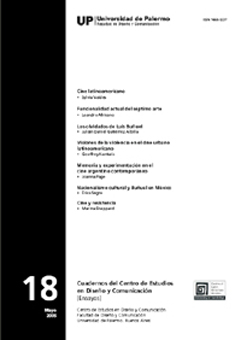Los olvidados de Luis Buñuel
Abstract
The film Los olvidados [The Young and the Damned] by Luis Buñuel apparently shows the effects of the
environmental factors on those subjects excluded from society. These subjects are excluded from the
modern city, which becomes a symbol of social progress, and the advantages of citizenship. Therefore,
these subjects take up an invisible and inhospitable territory, a no-place.
How can a film based on a realistic report about misery within a Mexican historic context associated with a
traumatic and accelerated drive towards the modern economy characterized by Miguel Alemáns administration (1946-1952) can be re-read from the subjective position of the own social and sexual dissidence?
Roland Barthes concept of punctum will be used to answer this question in order to understand the
representation of the socially peripheral other. In Los olvidados, this representation of the peripheral other
against whom the bourgeois society defines itself- dismantles the hegemonic paradigms of sex, gender
and class which structure the bourgeois and heteronormative subjectivity, precisely because they are heterogeneous traces and discontinuities of the symbolic processes.
In a different level, Lacans notion of Real will be used to propose a criticism of that defined as realism
within the hegemonic order in our culture.
References
Los autores/as que publiquen en esta revista ceden los derechos de autor y de publicación a "Cuadernos del Centro de Estudios de Diseño y Comunicación", Aceptando el registro de su trabajo bajo una licencia de atribución de Creative Commons, que permite a terceros utilizar lo publicado siempre que de el crédito pertinente a los autores y a esta revista.


